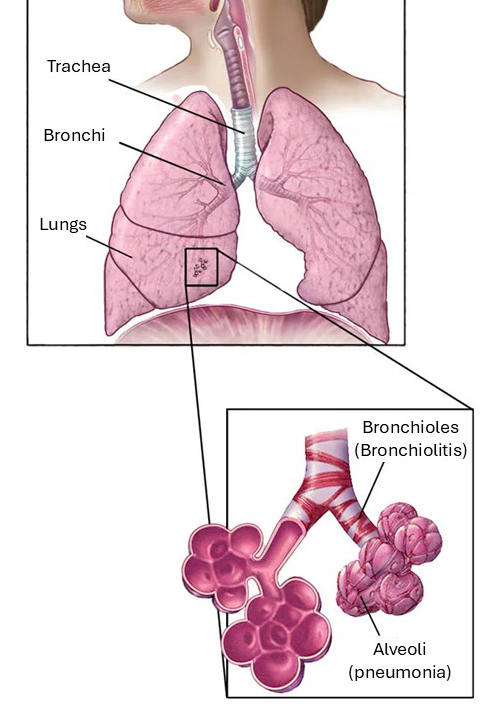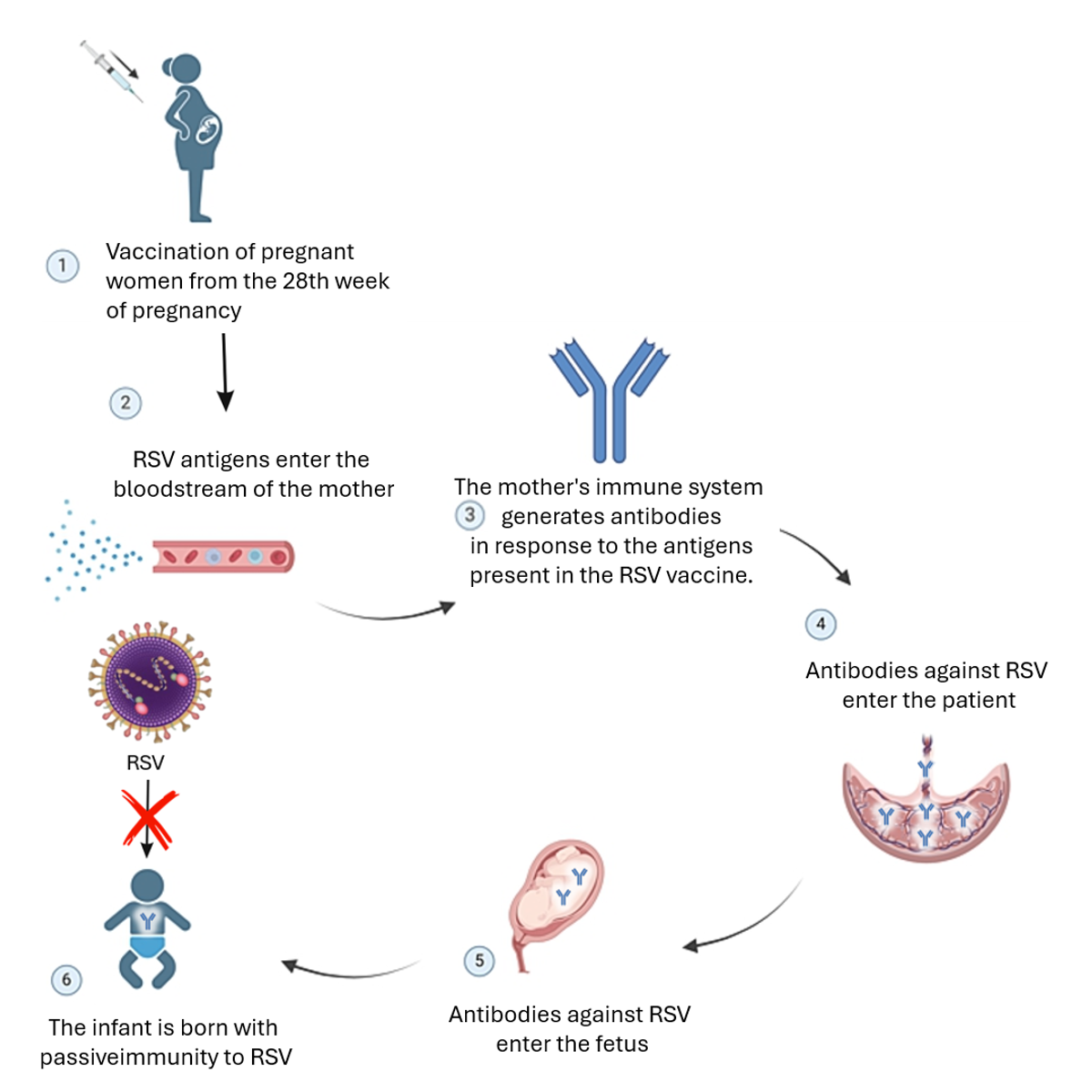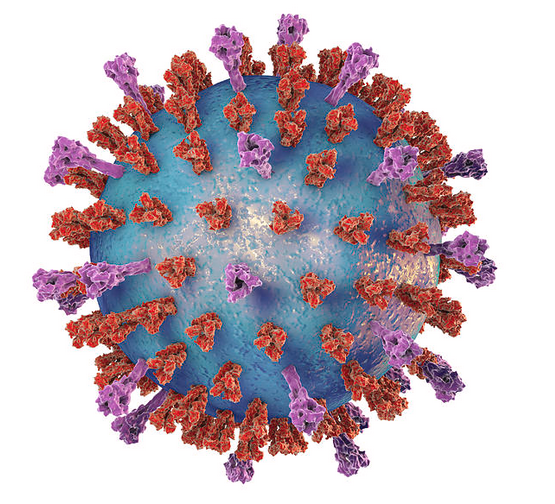The Fetal Ultrasound Center is starting to vaccinate pregnant women against respiratory syncytial virus (RSV) to protect newborns and infants from this potentially life-threatening pathogen.
Respiratory syncytial virus (RSV)
Respiratory syncytial virus (RSV) is a common virus that typically causes mild, cold-like symptoms in adults with healthy immune systems. These symptoms can include a sore throat, cough, muscle aches, and nasal congestion. However, RSV can lead to serious lung problems in infants and young children. The virus has two subtypes, A and B, and the illness is seasonal, occurring from October to April.
Respiratory syncytial virus (RSV) is the leading cause of lower respiratory tract infections that require hospitalisation in infants and young children.

In infants, the RSV virus can lead to inflammation of the lower respiratory tract.
On March 12, 2025, the World Health Organisation (WHO) recommended that all pregnant women receive the RSV vaccine. This vaccination aims to protect infants and young children from respiratory syncytial virus (RSV), the leading cause of lower respiratory tract infections, including bronchiolitis and pneumonia.
Vaccinated women transfer antibodies to their fetus, which helps protect newborns from RSV (respiratory syncytial virus) infection. Since there is currently no vaccine for RSV available for children, vaccinating pregnant women enables infants to build passive immunity. This immunity, derived from the mother's antibodies, lasts from birth until about six months of age, which is the period when RSV infections are most severe in infants.

What RSV vaccine is approved for pregnant women?
The Fetal Ultrasound Centre is offering the Abrysvo (Pfizer) vaccine for pregnant women, effective against both RSV subtypes.
How effective is the RSV vaccine for my baby?
Research indicates that the RSV vaccination can reduce a baby's risk of severe bronchiolitis by 70% during their first six months of life. However, like all medications, no vaccine guarantees complete protection, meaning that some babies may still contract RSV even if their mothers were vaccinated. Nevertheless, most babies born to vaccinated mothers are likely to experience milder RSV infections.
Is it safe to receive the RSV vaccine during pregnancy?
A clinical trial involving nearly 4,000 women demonstrated that the Abrysvo vaccine is safe for both mothers and their babies. In this trial, there was a slightly higher occurrence of premature births in the vaccinated group compared to the unvaccinated group. While this difference appears to be incidental, it is advised that you receive the vaccine no earlier than 28 weeks of pregnancy. Overall, the benefits of vaccination for both you and your baby far outweigh the risks of your newborn contracting RSV.
When is the optimal time to get vaccinated against RSV?
The ideal time to receive the RSV vaccine is during the 28th week of pregnancy. It is recommended to get vaccinated from the beginning of September (one month before the start of RSV season) to the end of February (one month before the end of RSV season). Therefore, women who are 28 weeks pregnant should consider getting vaccinated against RSV starting in early September.
Can I get vaccinated against other seasonal viruses at the same time?
Yes, it is possible to receive vaccinations for influenza and pertussis simultaneously with the RSV vaccine.
- At the Fetal Ultrasound Centre, pregnant women can get vaccinated against RSV;
- At the Fetal Ultrasound Centre, pregnant women can get vaccinated against influenza;
- At the Fetal Ultrasound Centre, pregnant women can get vaccinated against pertussis;
- At the Fetal Ultrasound Centre, pregnant women can get vaccinated against tick-borne encephalitis.
- At the Fetal Ultrasound Centre, Rh-negative women can receive immunisation against the development of fetal Rh incompatibility.

